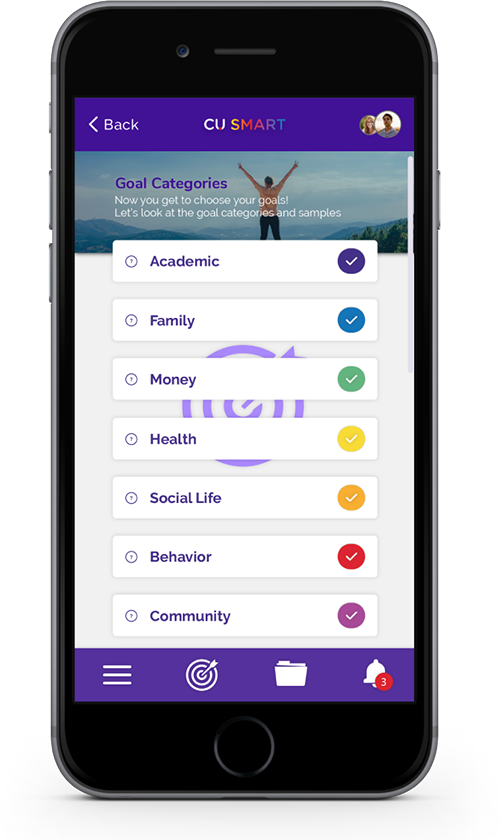CU7

This is how the CU7 can help!

Beyond Academic Achievement
Academic success is often measured by grades. While this is effective and standard across institutions, there is still room for expansion – beyond grades!
It is academics that helps adolescents focus on becoming successful students. But what does that really mean?
What actions must they take to improve their grades? Are they able to keep focus? Are their study habits effective, especially given the current climate? What relationships do they have with teachers and classmates? Quantifiable results (beyond grades) is a metric worth finding!
Relationships built on love
Building a solid foundation for relationships – this is family at its best. But it’s also during adolescent years that this foundation is tested more than we can imagine. ‘Forcing’ family time when adolescents are trying to assert their independence usually results in more isolation. Parenting styles can have a direct (negative or positive) impact on their relationship. A more effective strategy is to include adolescents in the decision-making process and describe what kind of relationship they envision having. Making them feel heard and understood goes a long way for the whole family.
Value worth building
What good is wealth, unless it is built on a solid foundation? Here the focus is on the adolescent’s relationship to money and how they value money. What beliefs do they have about earning, saving, or spending money? Do they avoid money altogether? What does money represent for them? Do they hold on too tight, or remember to share with the less fortunate?
It’s time to start educating students on building value and preparing for their future with savings goals! This will help them avoid saying (.. in 10, 20, 30 + years) “I should have started building wealth sooner.”
The perfect balance
A balanced mind and body produces the best results. This area focuses on how well adolescents are taking care of their mind and bodies. Are they getting enough sleep and exercise? Do they drink enough water? What type of foods are they fueling their bodies with: raw foods or processed? Adolescents will often define their body image by weight, muscle mass, and workout routines. It’s important that adolescents understand that the scale is not the only indicator of good health.
Best friends for life
Friends come and go as we evolve. The lessons and benefits that come from these relationships often stay with us for a lifetime. Social life focuses on the kind of relationships adolescents want to have with their peers.
This is where they decide how to nurture their friendships. Do they want to spend more time with friends? How often do they want to talk/text/PM/video chat? Is social media or certain friends disrupting other areas of their life? What can be done to reverse unhealthy friendships and social habits? BFF’s are at the heart of social life!
Showing up for success
Showing up for success starts with behavior. The focus here is on how adolescents act and carry themselves, especially in response to a particular situation. These reactions apply to both external and internal stimuli.
Do they get along with others? Are they respectful? How do they behave at school? At home? With friends?
Also, how do they handle success and failure? Do unexpected situations impact the way they show up?
Adolescence can be a challenging time. Being equipped with the right tools makes it easier!
Caring goes a long way
We grow by lifting others. And nothing says community like a little TLC. This area encourages students to lend a helping hand to those at a disadvantage (socially, medically, economically, mentally, or otherwise).
Adolescents develop the emotional maturity, empathy and awareness to begin making a positive impact in society.
They learn which tools will help them contribute ethically and respectfully. They develop a better understanding of the communities they live in.
Serving others is the greatest gift one can give.
Support your students’ journey with easy-to-use tools that make learning and goal setting impactful and fun! Discover. Grow. Repeat.
Assessments
Setting
Categories



